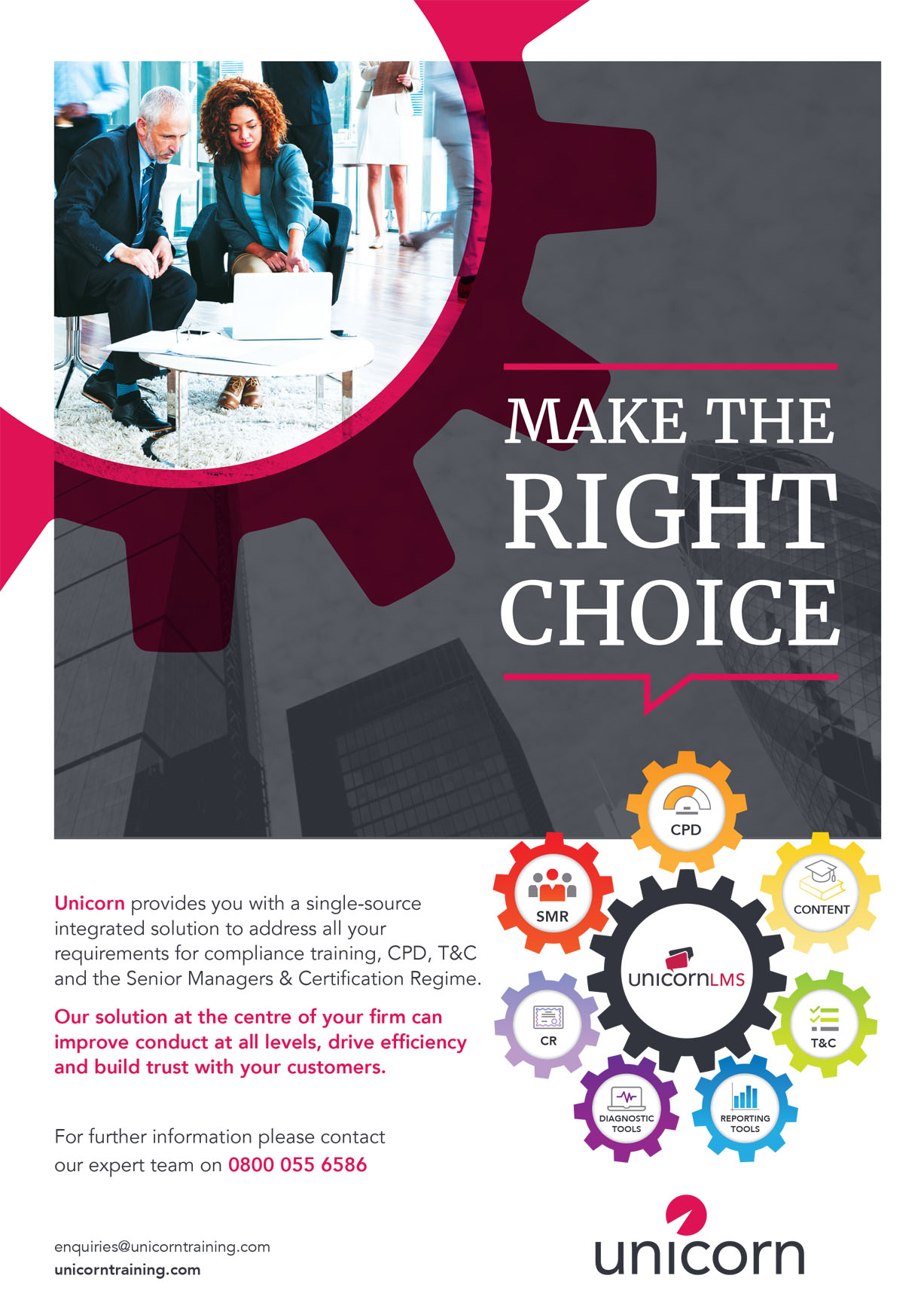In March 2019, the Government published its first Financial Inclusion report. So how can everyone have access to useful and affordable financial products and services? Emma Parnell, Digital Learning Designer at Unicorn Training (an Access company), looks at why financial inclusion matters to all who work in financial services.
In the UK more than 1.2 million* adults don’t have access to a bank account.
Being unable to access financial services seriously undermines an individual’s ability to take responsibility for their own financial wellbeing and resilience. Imagine if that were you and the impact it would have on your life.
Of course, there can be many reasons why someone doesn’t have access to a financial service. But does that mean financial services shouldn’t find a way for these people to become financially inclusive?
Being financially inclusive means individuals, regardless of background, income or ability, have access to useful and affordable financial products and services. For some time the FCA and Government have been looking at solutions to give people access to financial services they would otherwise not have.
The Government continues to work closely with the industry and regulators, in particular the FCA, to create the right regulatory environment for firms to achieve financial inclusion
So, why is this an important issue?
Following the set-up of a Financial Inclusion Commission in 2015 and Financial Inclusion Policy Forum in 2017 by the UK Government, it became clear there are some significant benefits of financial inclusion:
- Giving people access to products and services that are affordable and suitable to their needs (taking into account vulnerability), without discrimination or bias, will significantly improve their lives.
- Financial inclusion will enable people to fully participate in the economy and empowers them to achieve their life goals, whilst offering them protection in the face of adversity.
Here’s an example of how this has been working in practice. Some firms started allowing homeless people who sell the ‘Big Issue’ to use other forms of documentation, such as a letter of recommendation plus a seller’s badge to open a bank account to pay their earnings in to. Since then provisions have been made for some vendors to use cashless payment devices to assist in selling the magazine. The benefits to those individuals are obvious.
What happened next?
The FCA identified five focus objectives, which aim to achieve financial inclusion.
1) Banking – the starting point is everyone should have access to a transactional bank account enabling people to manage their money on a day-to-day basis effectively, securely and confidently. One initiative is Open Banking, which allows consumers and small businesses to access a range of new and innovative products to meet their needs, by allowing third-party providers with secure access to their current accounts.
2) Credit – affordable credit should be available supporting the social lending sector, offering an alternative for lower income customers who often may only be able to access high-cost credit. The FCA is also looking at simplifying how banks charge for overdrafts and tackling the high cost of unarranged overdrafts.
3) Savings – supporting people at all income levels and at all stages of life to save, including those on low incomes and those whose pension may not be able to sustain the cost of living in retirement; or where impaired ability in later life reduces income earning opportunity and financial stability.
4) Insurance – improving access to affordable insurance products, e.g. travel insurance for consumers with pre-existing conditions or insurance cover for those who need to give up work due to health issues or accidents. Alongside this, improving the clarity of consumer documents, so consumers more easily understand what risks their insurance policy will protect them against, and what is not covered.
5) Financial technology (fintech) – making it easier for consumers with online capability and businesses to access new and innovative products that meet their needs, such as Open Banking.
Other innovations include:
- Telematics insurance technologies that provide policy owners with premium rates based on number of miles used.
- Robo-advisers that openly disclose and offer low fees for customers who have limited access to traditional financial advisers due to high costs.
But how do we ensure we don’t exclude those who can’t use technology?
Although industry strongly supports the upskilling of consumers so they are better able to utilise technology, there will always be those who cannot use technology in this way, for example, some disabled people, those with low numeracy and/or literacy skills or those without access to a computer.
An example of this support is the introduction of the pause function for those using telephone banking, allowing customers to take time before making a decision. Vitally, the retention of physical branches or using mobile branches as an alternative channel will help support those who cannot use technology.
So where are we now?
Significant progress has been made over the past few years. For example, over 90,000 working people on low incomes have so far opened an account, with the Government offering a 50% bonus on deposits of up to £50 a month. But with a large number of people still without access to financial services, there remains much to be done.
The Government continues to work closely with the industry and regulators, in particular the FCA, to create the right regulatory environment for firms to achieve financial inclusion. This takes into account the use of existing Principle for Businesses 6, requiring firms to treat customers fairly, and Principle 7, requiring firms to have regard to the information needs of their customers and communicate with them in a way that is clear, fair and not misleading.
If they haven’t started already, financial services firms need to integrate financial inclusion as commonplace into their training and development programmes. From frontline staff to senior management, it must be clear what services are open to those who need additional support and how anyone, regardless of background, income or ability, can access them.
At Access Learning, we are helping firms address this need by introducing financial inclusion as part of our existing content on Treating Customers Fairly.
The successful implementation of all the measures identified by the regulator and Government will make a real difference in people’s financial lives and will signify important progress towards building a financially inclusive society. As they continue their work in this area, we can expect further milestones and perhaps regulatory change in the future.
*figures obtained from the HMT financial inclusion report 2018-19
**If you want to know more on how we can help, visit unicorntraining.com (part of the Access group), email digitallearning@theaccessgroup.com or call us on 0800 055 6586.





